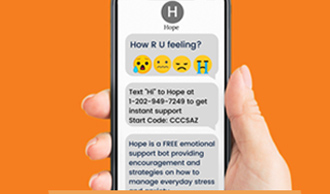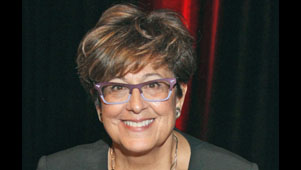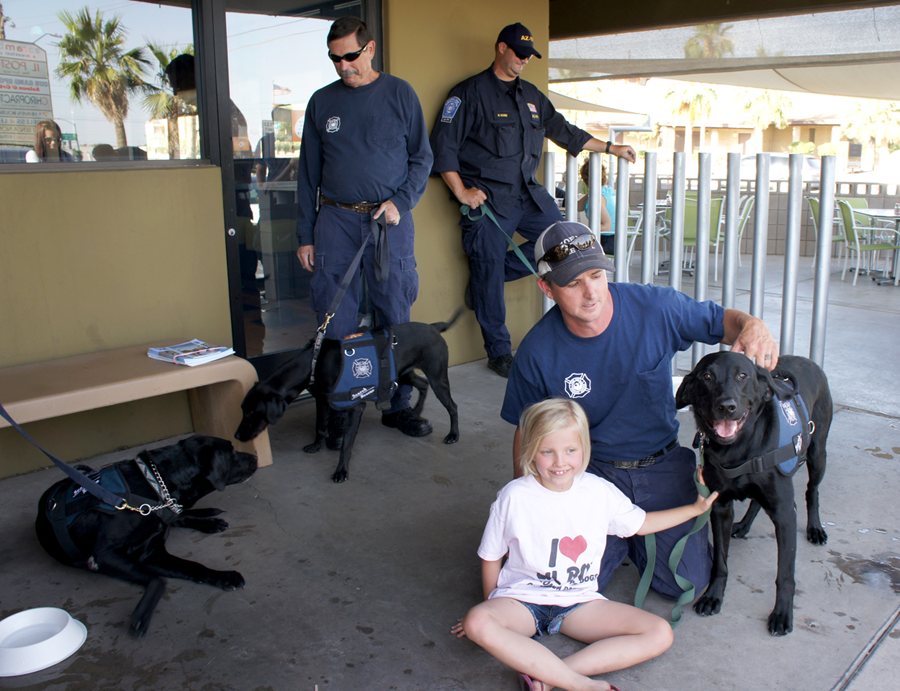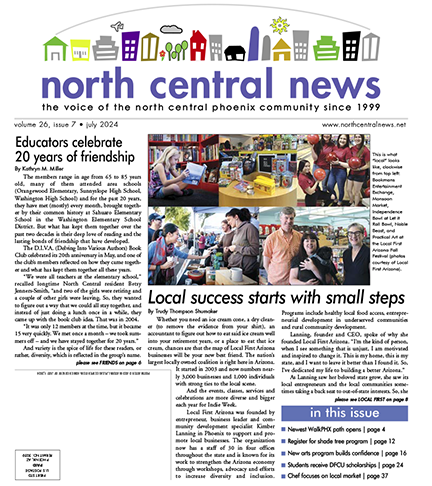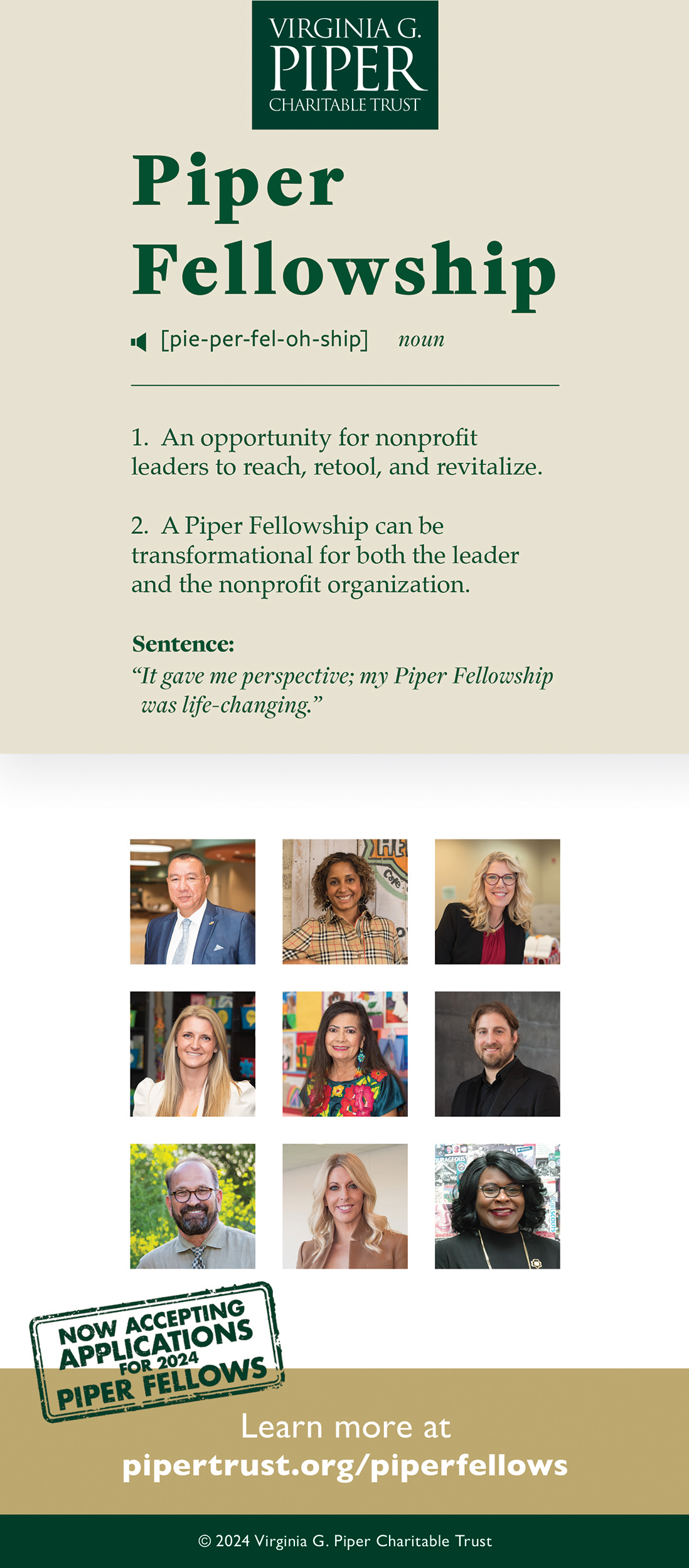Hope, a free mental health support chatbot, is the latest addition in the era of telehealth resources that have exploded in recent months to combat the sharp rise of anxiety and depression-related cases due to the COVID-19 pandemic.
Hope, built by clinical psychologists, is an artificial intelligence (AI)-driven chatbot through which users communicate via text. Catholic Charities Community Services, which is based at 4747 N. Seventh Ave., recently propelled this technology in the Valley.
“With COVID, the virtual world is blowing up,” said Anna Smith, who has been a counselor at Catholic Charities in Phoenix for 13 years. “We’re seeing more telehealth sessions. We’re seeing more text counseling so I think this is to keep up with that and to give something to our community through Catholic Charities.”
The artificial intelligence system cheerfully named Hope is designed to be accessible to all despite religious affiliation and caters to English and Spanish-speaking users. It is focused on alleviating mental health crises when other services might not be readily available. Hope can guide a user through breathing exercises, listen to concerns and connect the user with relevant supplementary resources.
“Finding those resources for people to talk to outside of the counseling session is really important, especially now with Coronavirus as we are seeing depression and anxiety skyrocket,” Smith said.
Mental health services are in high demand and additional resources, including Hope, may provide more opportunities for people in Phoenix to get the help they need.
Francia Day, a licensed bilingual clinical psychologist and program director at Southwest Behavioral & Health Services in Phoenix, has seen the toll of the pandemic firsthand.
“Every single one of our intake slots is filled every week and we typically still have a wait list and we do attribute that to the pandemic,” Day said.
With counseling services not always immediately available, these apps can be seen as useful tools as starting off points or used between sessions with a therapist.
However, as Larry Villano, chief energy officer of Resilient Health and a licensed professional counselor, said in a panel hosted by MolinaCares Accord, “these automated self-directed tools can be useful but look at them as a nice complement to care, not replacing care.”
Resilient Health in Phoenix is focused on providing scientifically based mental health services by integrating many different treatments, including standard counseling, group therapy, art therapy and psychiatric treatment.
As the COVID-19 pandemic continues to pummel the Valley, concerns about depression, anxiety and social isolation continue to be at the forefront of these mental health practitioners’ minds.
To contact Hope, text “Hello” to 202-949-7249 and when prompted use the code CCCSAZ. For more information about Resilient Health, visit www.resilienthealthaz.org. To learn more about the services that Catholic Charities Community Services offers, visit www.catholiccharitiesaz.org.

